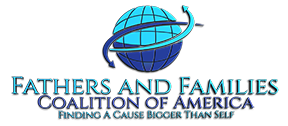Posts
Saving Lives: The Power of QPR Suicide Prevention Training
#MentalHealthMatters #SuicidePrevention #QPRTraining #BuildingBridges2025 #FathersAndFamiliesCoalition #FreeCEUTraining
#WellnessCommitment
Suicide and The Importance of QPR
By: Dr. Alicia Jackson, PhD
Coordinator of Clinical Programs, Certified QPR Trainer
Florida A&M University, Office of Counseling Services
Introduction: The Vital Role of QPR in Suicide Prevention
The 26th International Families and Fathers Conference, Building Bridges, hosted by the Fathers and Families Coalition of America (FFCA) in Los Angeles, California, is an extraordinary gathering of thought leaders, advocates, and professionals dedicated to strengthening families and communities. Scheduled for April 8–10, 2025, at the Hilton Los Angeles Airport Hotel, with specialty trainings on April 11th, this conference underscores FFCA's commitment to wellness and professional development. Among the invaluable offerings is the QPR Suicide Prevention Certificate Training, provided free of charge to all attendees as part of FFCA’s mission to foster mental health awareness and actionable solutions.
The QPR (Question, Persuade, and Refer) Suicide Prevention Training is more than an educational program—it is a lifeline for individuals in crisis and a transformative experience for those who participate. With continuing education units (CEUs) available, this initiative empowers attendees with practical tools to recognize warning signs, intervene effectively, and refer individuals to the necessary support systems. FFCA's dedication to offering this critical training for free reflects its unwavering focus on equipping communities with the skills to address mental health crises compassionately and proactively.

The Case for QPR
According to the CDC (2024), a staggering number of 49,000 people succumbed to suicide in 2022, equating to one life lost every 11 minutes. These statistics underscore the urgent need for action. Shockingly, 3.8 million individuals formulated a suicide plan, and 1.6 million attempted to end their lives. The highest rates of suicide were recorded among non-Hispanic American Indian and Alaska Native people and non-Hispanic White people. Males, constituting 50% of the population, accounted for nearly 80% of suicides (CDC, 2024).
Despite its prevalence, suicide is not an easy subject to discuss. Many people who suffer from mental illnesses such as mood disorders, in particular Bipolar (Fawcett, 2012), are at elevated risk for completing suicide. There is still a stigma around having a mental health disorder and seeking therapy. For those who have suicidal thoughts can be difficult to talk to someone about their feelings without the fear of being judged or misunderstood by others.
The Question, Persuade, and Refer (QPR) is not just a program; it is a beacon of hope in the fight against suicide. This initiative is designed to empower non-professionals with the skills to assist individuals in mental health crises. Through its question, persuade, and refer processes, QPR educates and empowers everyone to make a difference. The Gate Keeper Training Program allows participants to practice these skills and earn a certificate, a testament to their commitment to saving lives.
One of the most crucial aspects of QPR is educating others about the signs and clues of suicide. These signs, whether direct or indirect, are often overlooked or misinterpreted. By understanding and recognizing these signs, we can all be more vigilant and potentially save a life. Remember, the more signs we recognize, the higher the chance of preventing a suicide attempt. This responsibility falls on all of us.
QPR has a saying, "Suicide is everybody's business" (QPR Institute | Practical and Proven Suicide Prevention Training, n.d.). This statement rings true because whether you were trained as a psychologist like me, a teacher, a minister, a next-door neighbor, a stranger, or a friend, we can all learn how to help someone in crisis. The more others are educated about suicide and how it impacts their mental health, the more we will be able to save lives.
Conclusion: Building Bridges to Hope
The 26th International Families and Fathers Conference is more than a platform for dialogue—it is a gateway to meaningful change. The QPR Suicide Prevention Certificate Training exemplifies this commitment by equipping attendees with life-saving skills and the confidence to intervene during a crisis. Together, we can dismantle the stigma surrounding mental health, elevate the conversation about suicide prevention, and build bridges to hope for individuals and families worldwide. Join us in this mission to empower and uplift one another for a healthier, more compassionate future.
About the Author: Dr. Alicia Jackson
Dr. Alicia Jackson, a native of Quincy, Florida, is a distinguished mental health professional and community advocate. A graduate of James A. Shanks High School (1997), Dr. Jackson earned her Bachelor of Science in Psychology with a minor in Sociology from Florida A&M University in 2001, followed by a Master of Science in Community Psychology in 2004. She became the first FAMU student to be accepted into the University of Georgia’s Counseling Psychology doctoral program, completing her degree in 2008.
Currently serving as Coordinator of Clinical Services and Research at FAMU’s Office of Counseling Services, Dr. Jackson has over seven years of experience in higher education and counseling. She is also an adjunct professor at Tallahassee Community College and has served as a professor at her alma mater. A passionate community leader, Dr. Jackson is an active board member of several organizations, including Crossroad Academy Charter School and Day of Dialogue on Minority Health, Inc.
Dr. Jackson’s dedication extends beyond academia. As a radio ministry leader at Midway Unity Fellowship Church, a podcast guest, and an Associate Pastor-in-waiting, she seamlessly integrates her expertise in mental health and Christian faith. A muscle car enthusiast and devoted educator, Dr. Jackson continues to inspire through her work and advocacy.
For more information:
Email:
LinkedIn: Dr. Alicia Jackson
Website: Florida A&M University Counseling Services
Podcast: Moments by AJ
References
Fawcett J. Diagnosis, Traits, States, and Comorbidity in Suicide. In: Dwivedi Y, editor. The Neurobiological Basis of Suicide. Boca Raton (FL): CRC Press/Taylor & Francis; 2012. Chapter 1. Available from: https://www.ncbi.nlm.nih.gov/books/NBK107213/
Suicide data and statistics. (2024, October 29). Suicide Prevention. https://www.cdc.gov/suicide/facts/data.html
QPR Institute | Practical and Proven Suicide Prevention Training. (n.d.). https://qprinstitute.com/research-theory

